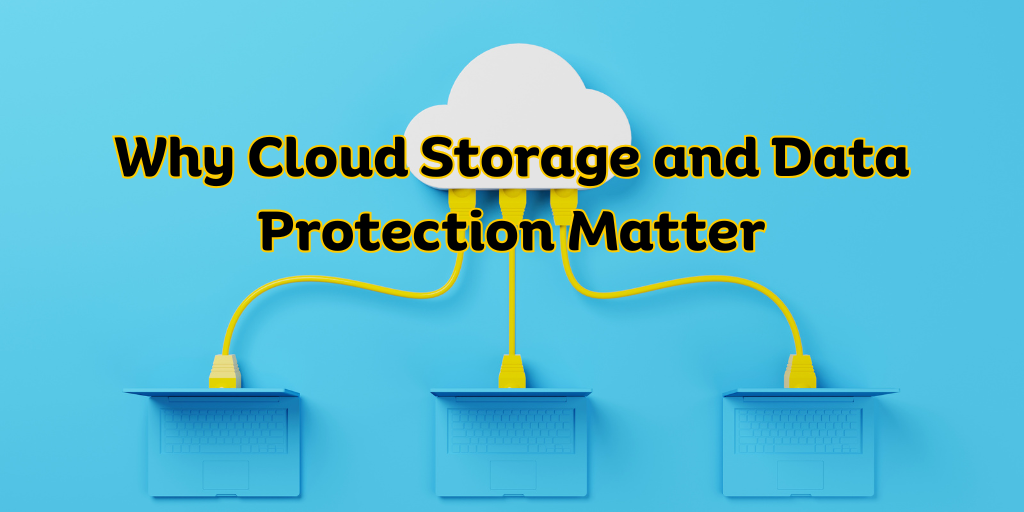Why Cloud Storage and Data Protection Matter
Data is essential for businesses today. With much of it stored online, cloud storage and data protection are more important than ever. Many businesses and individuals are moving data to the cloud for easier storage, access, and sharing. However, as data grows, protecting it becomes crucial.
In this article, we will explain what cloud storage is, why it’s important, and how to protect your data in the cloud. We will also share some tips to keep your data safe.
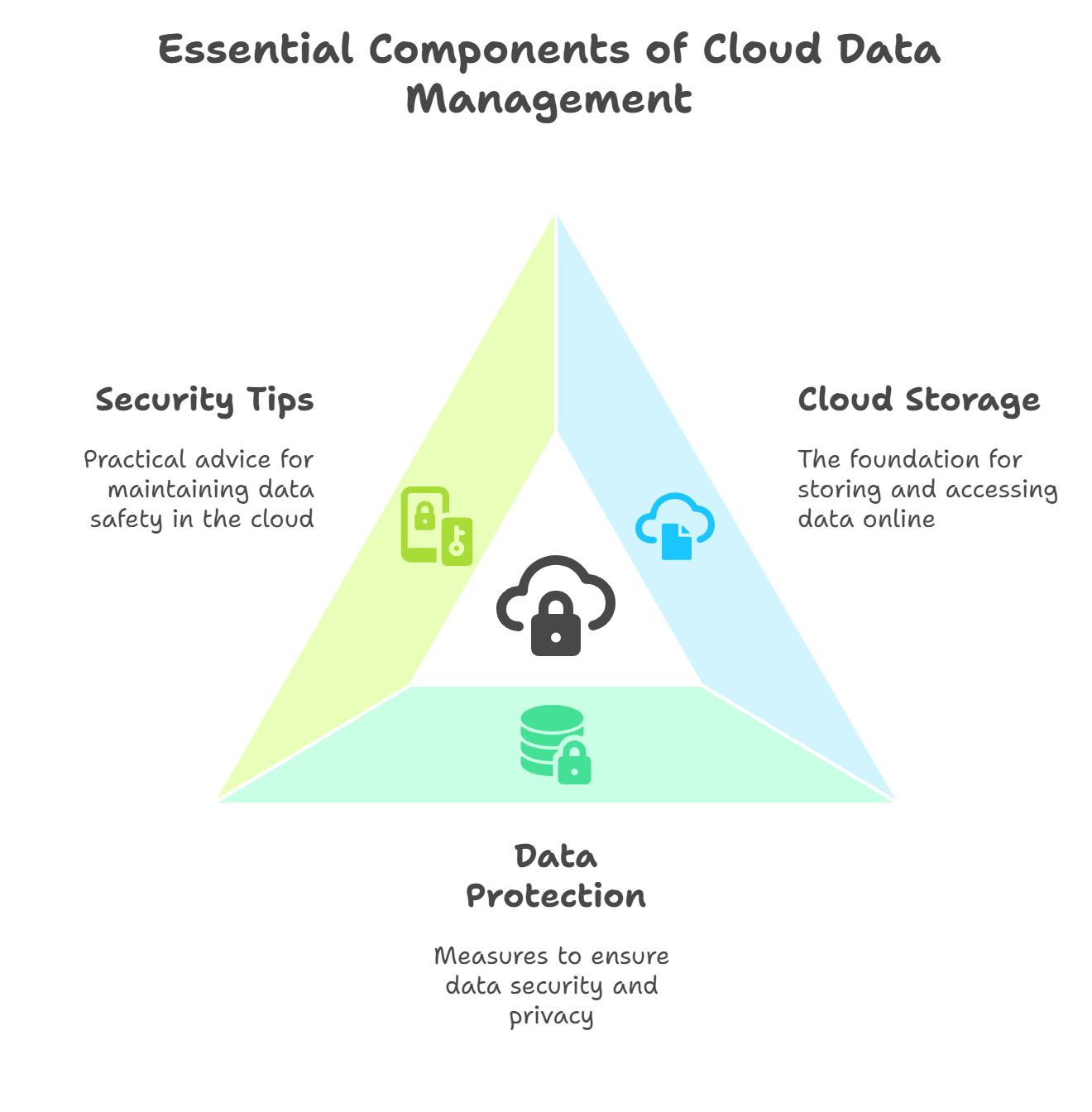
What is Cloud Storage?
Cloud storage allows you to store data on remote servers instead of your personal devices. These servers are managed by cloud providers like Google Drive, Dropbox, and Amazon Web Services (AWS). Cloud storage is easy to use, scalable, cost-effective, and reliable.
Types of Cloud Storage
There are three main types of cloud storage:
-
Public Cloud Storage
This type of storage is provided by third-party services, such as Google Drive or iCloud. It’s easy to use and affordable, making it ideal for businesses and individuals with limited IT resources. -
Private Cloud Storage
This storage is dedicated to one organization. It can be hosted either by the company or by a third-party provider. Private cloud storage offers better control and security, making it a good choice for businesses with high security needs. -
Hybrid Cloud Storage
Hybrid cloud storage combines public and private cloud services. This setup allows businesses to store some data on public clouds and keep sensitive information on private clouds, offering a balance of flexibility and security.
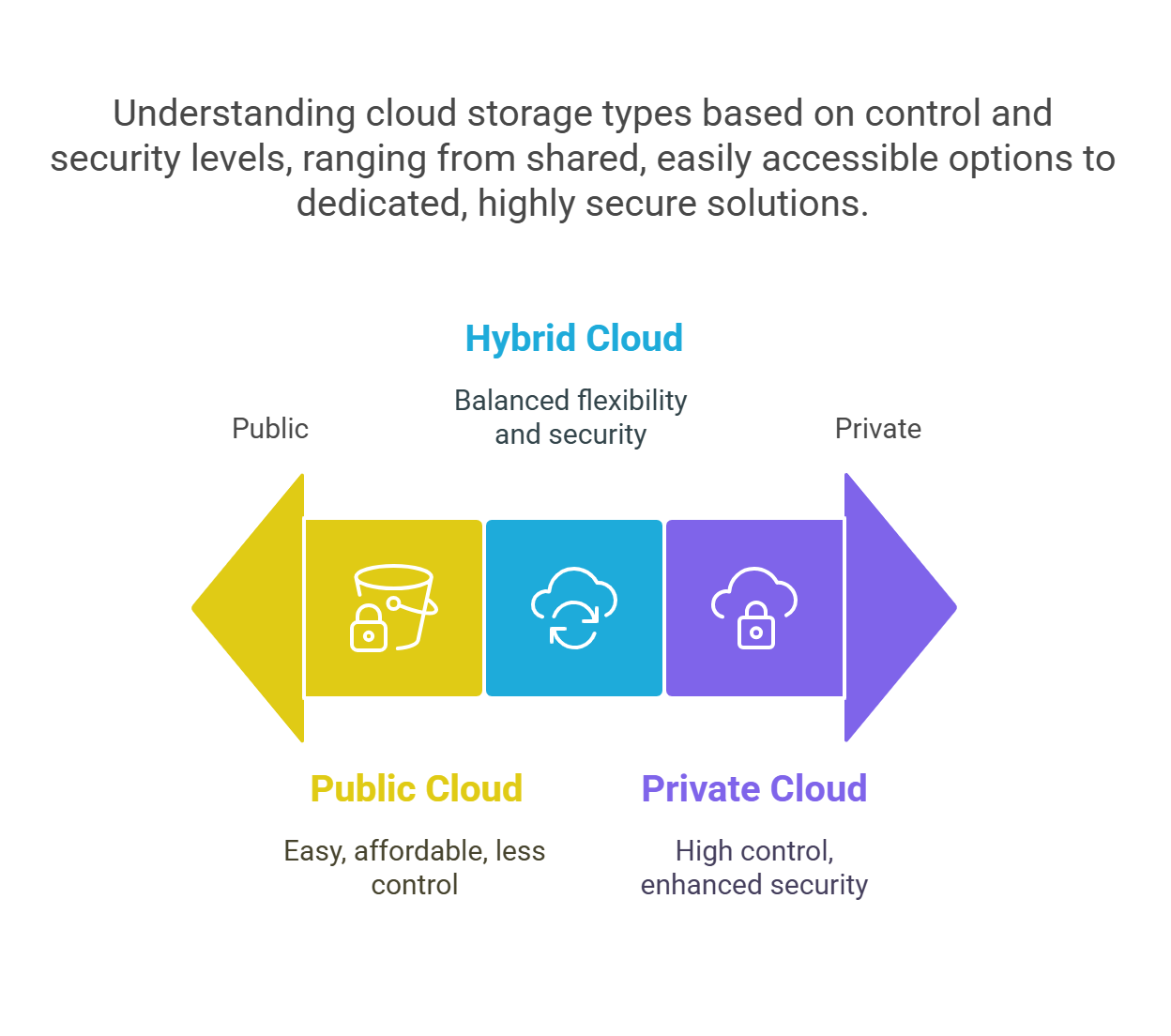
Why Is Data Protection Important in the Cloud?
Cloud storage is beneficial, but it also comes with risks. One major concern is ensuring your data is safe from cyberattacks, data breaches, and loss. Data protection helps ensure that your sensitive information stays safe, even in the cloud.
Common Risks to Cloud Data
-
Data Breaches
Cybercriminals often find new ways to steal sensitive data. A breach can damage your reputation, cause financial loss, and lead to legal issues. -
Data Loss
Although cloud providers are reliable, data can still be lost due to technical issues or human error. Without proper protection, businesses may face significant problems. -
Lack of Encryption
If your data isn’t encrypted before being uploaded to the cloud, it can be intercepted and accessed by hackers. -
Compliance Issues
Many industries must follow strict data regulations, such as GDPR and HIPAA. Not complying with these rules can lead to hefty fines.
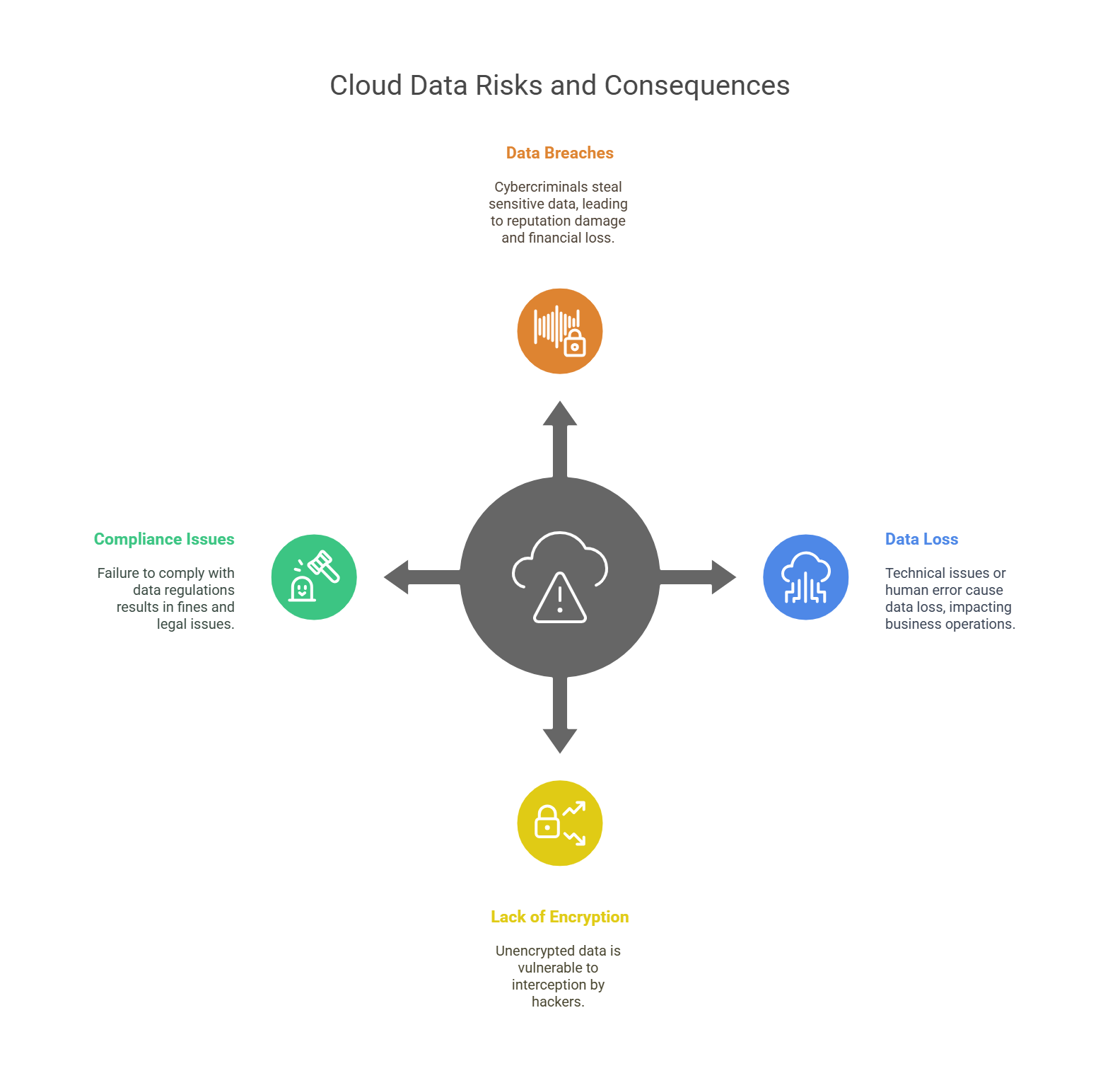
How to Protect Data in the Cloud
To protect your data, businesses and individuals should follow these steps:
1. Use Strong Encryption
Encryption ensures that your data is unreadable to anyone without the correct key. Make sure your data is encrypted both when it’s uploaded and when it’s stored in the cloud. Many cloud providers offer encryption, but always check to confirm your data is protected.
2. Enable Multi-Factor Authentication (MFA)
MFA adds another layer of security. It requires users to verify their identity with something extra, such as a fingerprint or text code, in addition to their password. This helps prevent unauthorized access.
3. Backup Your Data Regularly
While cloud providers often back up data, it’s still a good idea to back it up yourself. If something goes wrong, you’ll be able to restore your data quickly.
4. Monitor Cloud Activity
Monitor who is accessing your data using activity tracking tools. Set up alerts to notify you of any suspicious activity so you can respond quickly.
5. Control Access
Not everyone in your organization needs full access to all data. Role-based access control (RBAC) lets you limit access based on someone’s role, ensuring only authorized users can view sensitive data.
6. Choose a Reliable Cloud Provider
The security of your data depends on the cloud provider you choose. Look for a provider that offers strong security features like end-to-end encryption and regular security audits.
7. Stay Compliant with Regulations
If your business needs to follow data protection laws like GDPR or CCPA, make sure your cloud provider can help you meet these requirements. Compliance tools can help track access, provide encryption, and create audit trails.
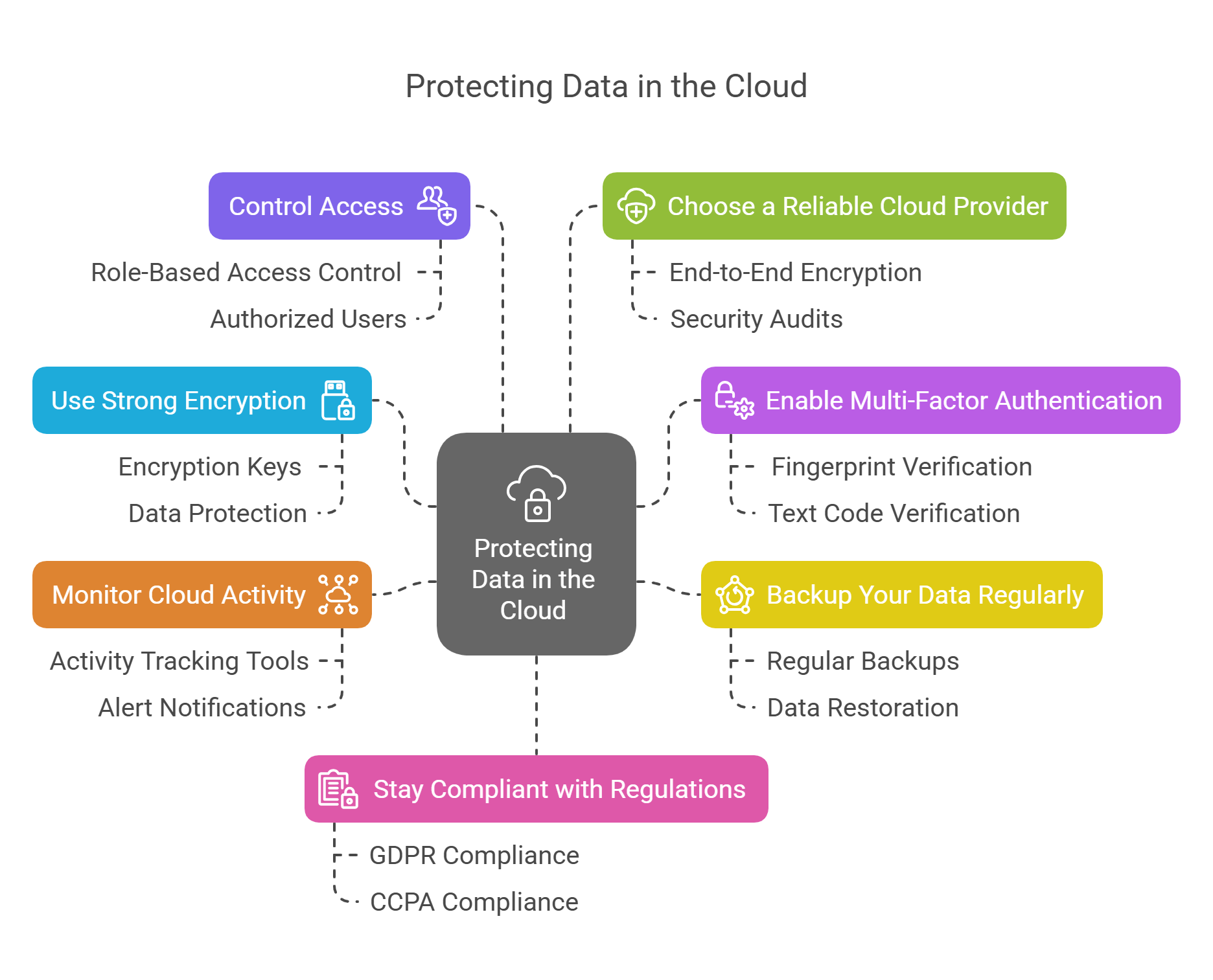
FAQs about Cloud Storage and Data Protection
What is the main benefit of cloud storage?
Cloud storage makes it easy to access your data from anywhere without needing physical storage devices. It’s also scalable, so it can grow as your data needs increase.
How secure is cloud storage?
The security of cloud storage depends on your provider and how you use it. Many providers offer encryption and MFA, but it’s important to take extra steps, like backing up your data.
Why is data encryption important for cloud storage?
Encryption makes your data unreadable to unauthorized users. Even if hackers get access, they won’t be able to read your data without the decryption key.
Can cloud storage be hacked?
Cloud storage can be hacked, but using encryption, MFA, and monitoring tools greatly reduces the risk.
How Cloud Storage Can Help Businesses Stay Compliant
Cloud storage helps businesses follow data protection laws by offering tools such as data access logs and encryption to meet strict regulations, such as HIPAA and GDPR.
Conclusion: Cloud Storage and Protection
Cloud storage offers many benefits, but protecting your data is critical. By using encryption, MFA, regular backups, and monitoring, you can keep your data secure.
Choose a trusted cloud provider and follow these best practices to ensure your data stays safe.
Call to Action: If you haven’t moved your data to the cloud yet or need to improve your security practices, now is the time. Choose a trusted provider and follow the tips in this article to protect your data.
